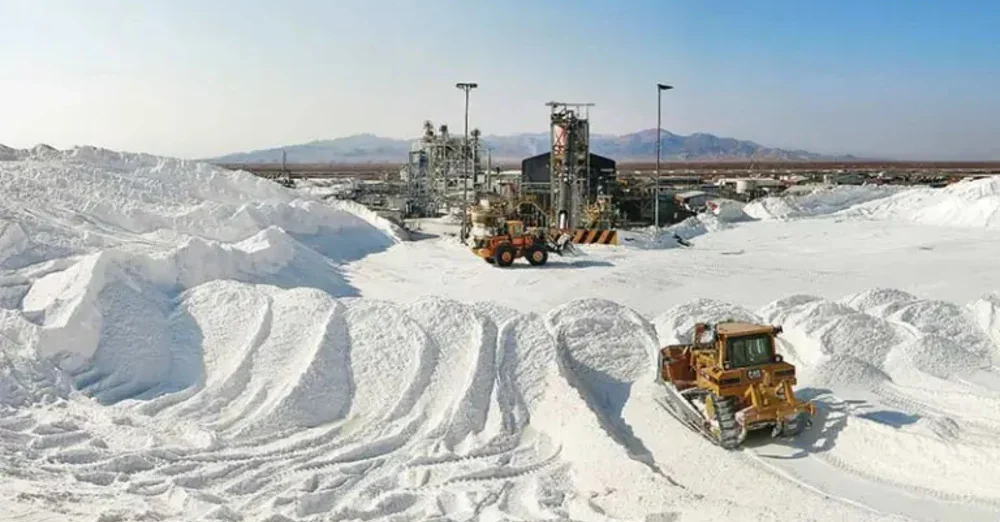Europe has ambitious plans to establish 50 gigafactories on the continent by 2030. However, one of the countries with significant potential in lithium production is facing substantial challenges.
According to a study by Transport & Environment (T&E), 80% of Germany’s future lithium-ion battery production capacities are under threat.
The projected production faces potential delays, reductions, and even the possibility of complete cancellation.
Part of the German industry blames the government for not promoting promising battery technology. Furthermore, the previous administration rejected a request made years ago.
On the other hand, it’s worth noting that experts concur that global demand for lithium and rechargeable batteries will continue to increase significantly in the coming years. Electric cars are the primary drivers of this development.
However, many argue that substantial funding for battery components and metals in the United States, established by the Inflation Reduction Act (IRA), has disrupted this momentum.
This has led to Europe’s share of global investment in lithium-ion batteries falling from 41% in 2021 to just 2% in 2022.
One of the reasons behind the surge in lithium prices last year was the heightened demand and supply shortages.
According to T&E, if these capacities are not expanded, 68% of planned production in the Europe is at risk.
As a result, the EU will be unable to meet its domestic battery demand by 2030 and will become dependent on imports from foreign competitors.
At this juncture, Germany finds itself in a situation that could compromise one of the fundamental pillars of European Union climate legislation.

“The Federal Chancellor, Olaf Scholz, must make an urgent decision regarding Europe’s role as a center for battery production,” asserts Sebastian Bock, Managing Director of T&E-Germany.
For the greater success of electromobility, the availability of raw materials is crucial, primarily lithium, nickel, graphite, and cobalt for battery production.
Consequently, the industrial shift towards greater climate protection requires a new raw materials base.
In this regard, the German Association of the Automotive Industry (VDA) insists: “We urgently need more partnerships and commodity-focused trade agreements.”
“Germany and Europe’s commitment to raw materials policy determines our competitiveness and, therefore, our role and relevance on the path to climate neutrality,” they affirm.
Ongoing projects for lithium extraction in Germany
According to the United States Geological Survey, Germany holds about 3.2% of the world’s total lithium reserves.
Additionally, a couple of years ago, a new deposit of the mineral was discovered in a mine beneath the River Rhine.
It is estimated that this deposit could provide enough energy for the batteries of 400 million electric cars.
This would make Germany one of the largest lithium deposits in the world, a podium currently occupied by Chile, Australia, and Argentina.
Therefore, this represents a significant advancement for the country and for Europe, as it reduces their dependence on regions in South America or Australia.
According to German authorities, the extraction process of the “white gold” is set to begin soon.
In doing so, environmental impact considerations must also be taken into account.
Vulcan Energy Resources aims to produce the world’s first carbon-neutral lithium from what it considers Europe’s largest lithium resource.
Nevertheless, some gigafactories face the risk of production delays in Europe.
One of them is Tesla’s factory in Berlin-Grünheide.
The company recently announced a shift in focus from its current cell production to the United States to benefit from IRA subsidies.
Meanwhile, the planned gigafactory by Northvolt in Heide has only secured partial financing and has not yet commenced construction.
Its CEO also mentioned the possibility of expanding in the United States, where estimated total mineral reserves amount to approximately 3.6 billion tons.








